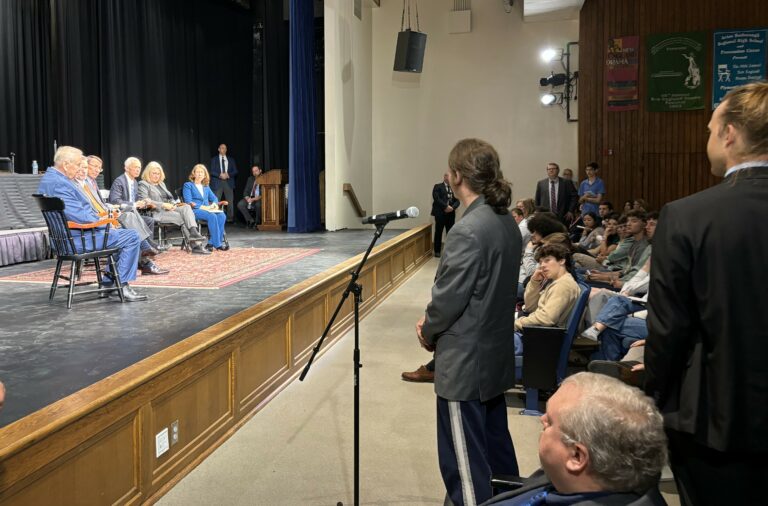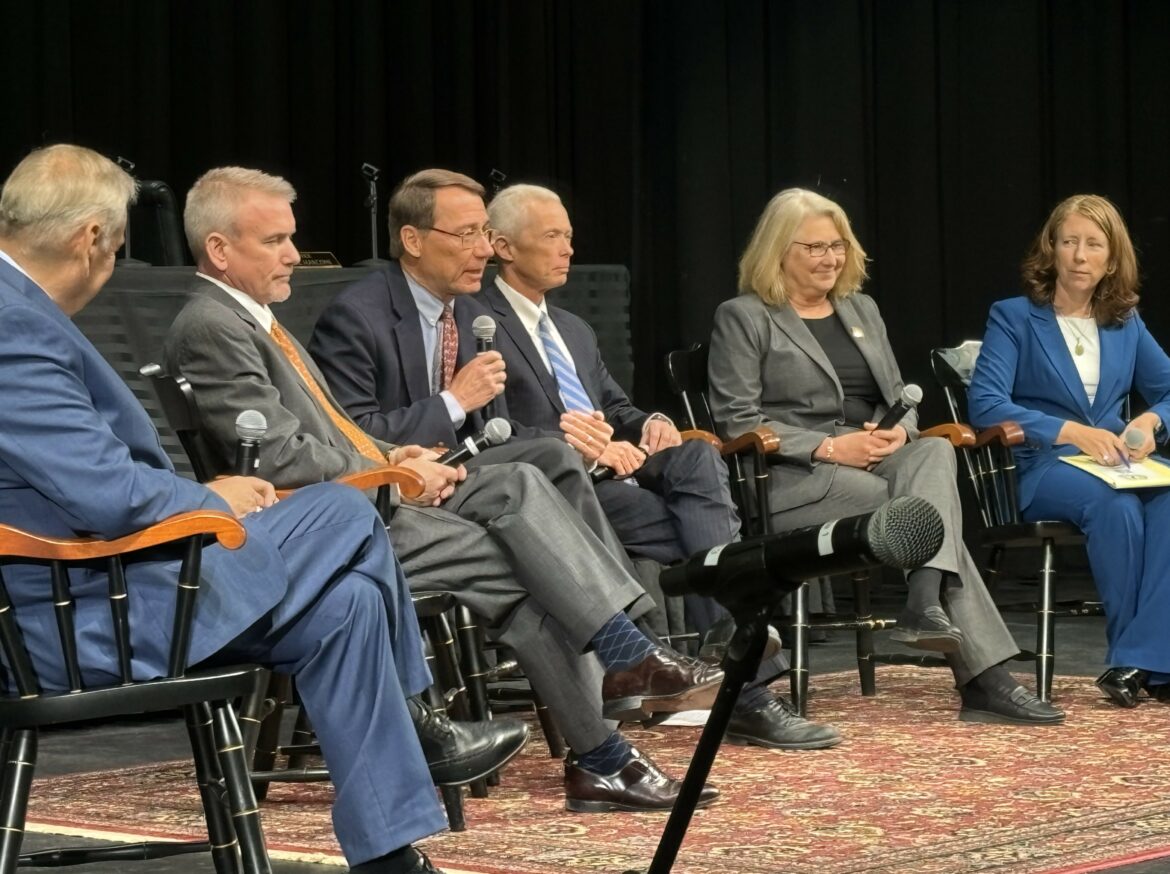
By PAULA TRACY, InDepthNH.org
CONCORD – The state Supreme Court has ruled that a Superior Court judge ruled correctly to dismiss the case of a woman who was paralyzed in a sledding accident in January of 2022 at an apple orchard in Londonderry.
“Because access to the defendant’s land for recreational purposes was without charge to the general public, RSA 508:14 I applied. The trial court correctly granted the defendant’s motion to dismiss,” the court ruled.
The affirmed order Oct. 11 in the case of Caroline Adams versus Moose Hill Orchards LLC d/b/a Mack’s Apples was issued without dissent.
It noted, however, that Justice Ann Barbara Hantz Marconi sat for the oral argument but did not participate in the final vote.
She is on administrative leave for 90 days and her husband, Geno Marconi is also on leave from his position as the director of the state Division of Ports and Harbors. He has been on leave since April with the Pease Development Authority declining to say way.
The high court issued a statement about the decision July 25 but Hantz Marconi had been recusing herself from cases involving the Attorney General since May.
The AG’s office said “No comment,” Monday when asked for comment on the matters involving the Marconis.
The state Supreme Court case involving Adams was argued before more than 200 people at Plymouth Regional High School in April where students of both that school and nearby Plymouth State University were invited to attend as part of periodic appearances where the high court has been going “on the road” to teach the public a bit about their work and hearing real cases, in which both sides agreed to participate.
“This is not a role play. This is an actual case before the court,” said Ned Gordon of Bristol, a retired circuit court judge and former state senator who introduced the case and the process before the five justices took the stage wearing their robes that day.
He then helped moderate a discussion afterward with the students.
Chief Justice Gordon J. MacDonald, Senior Associate Justice James P. Bassett, Justice Anna Barbara Hantz Marconi, Justice Patrick E. Donovan and Justice Melissa B. Countway then took the stage, and after hearing the case answered questions.
Attorneys Anna Zimmerman and Michaila Oliveira represented the plaintiff and attorney Nick Wright represented the orchard’s owners.
Adams, a dentist, and a Hudson resident was seriously injured on the orchard property while sledding in 2022 and sued the landowner. But Rockingham County Superior Court Judge David Ruoff approved the orchard’s motion to dismiss.
Adams was sledding at the apple orchard Jan. 30, 2022, and while Mack’s does not prohibit members of the public from sledding on its property, nor charges for such access, it operates a seasonal stand which is on the way to the sledding hill and sells hot cider, hot chocolate, and other goods to sledders, which Adams and her husband, Christopher Estrella, had planned to patronize.
Her complaint alleged that Mack’s Apples was liable under a theory of negligence — that the sledding hill contained a dangerous and unseen “jump” and that, as a result of the jump’s presence, Mack’s Apples did not comply with a legal duty to maintain its property in a safe manner free of unreasonably dangerous conditions and defects.
Mack’s Apples filed a motion to dismiss under RSA 508:14, I (a New Hampshire statute), which provides:
“An owner, occupant, or lessee of land, including the state or any political subdivision, who without charge permits any person to use land for recreational purposes or as a spectator of recreational activity, shall not be liable for personal injury or property damage in the absence of intentionally caused injury or damage.”
After reviewing the complaint and the motion to dismiss, Ruoff granted the motion to dismiss in reliance on the statute.
The plaintiff argued that the statute does not apply under the case Soraghan v. Mt. Cranmore Ski Resort, 152 N.H. 399, 403 (2005), in which the Supreme Court held that the relevant inquiry under the statute is not whether any single person was charged to use the defendant’s land for recreational purposes, but “whether the injured entrant was on the property for a purpose related to the landowner’s business for which the landowner customarily charges.”
The plaintiff contended that Mack’s Apples is subject to liability under Soraghan because Mack’s Apples “is not simply a private landowner permitting members of the general public to use [its] land for recreational purposes,” but is “allowing the public to use its land as a means of enticing the public to its property for the primary purpose of its business to sell items to the public for a profit.”
The Superior Court rejected this argument, ruling that, “even when a landowner may indirectly profit from allowing access to their land, recreational immunity still applies so long as there is no charge to the general public for access to the land itself.”
Mack’s Apples argued that the Superior Court’s ruling was correct under the statute because Mack’s Apples allowed the general public to access its land without directly charging a fee for use of the sledding hill.
The high court ruling looked at the Cranmore Ski Resort case and another involving Loon Mountain and observed that the core purpose of the applicable state law is “to encourage public recreational use of privately-owned land. To effectuate that purpose, a private landowner is entitled to recreational use immunity when the landowner ‘allows any person as a member of the general public to use (its) land, and does so without charge'” and is distinguishable from the ski resort case.
Just because they had a farmstand, any purchase there was voluntary and not required to access the land for sledding, the high court ruled.






